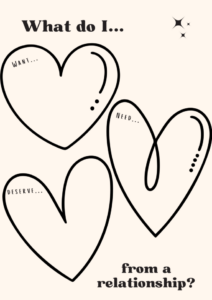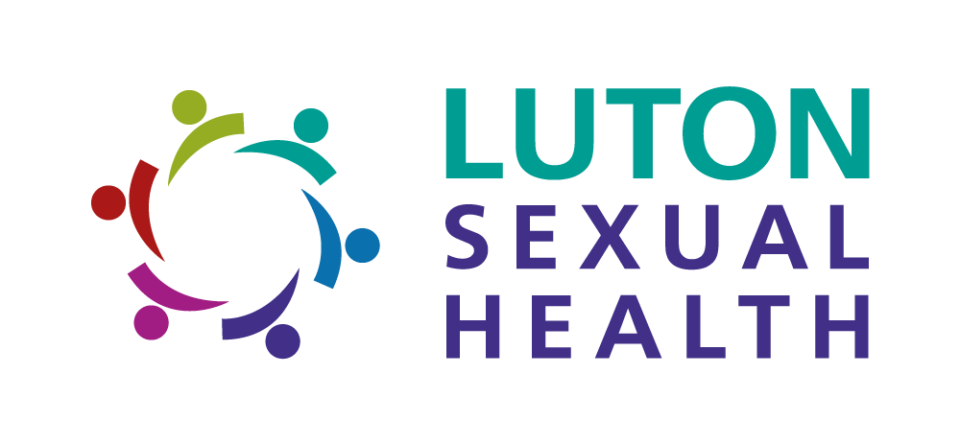Sex and Relationships
It is important to know what makes a healthy relationship, and what the signs are of an unhealthy relationship.
Healthy relationships are happy ones. It is important to know what constitutes a healthy relationship. Not everyone is happy all the time, and arguments are part and parcel of relationships, but there are some general signs of a healthy, equal relationship.
Some signs of healthy relationships are;
- listens to you and values your opinion
- respects your feelings
- trusts you
- is happy for you to spend time with your own friends
- would never physically hurt you
- would never call you names, threaten you or make you feel bad
- makes you feel comfortable and safe to be yourself
- accepts when you say no to things you don’t want to do
- never tries to control who you see, where you go or what you wear

LSH Outreach 1:1 Support Book – Kelsie Holdstock-Clarke (Education/Outreach Lead)
There are many different forms of abuse, not just physical but emotional and mental. Threats or intimidation can be just as serious as physically hurting someone.
There are some signs that your relationship could be abusive. Your partner may:
- physically hurt you when they are angry
- get angry, jealous or suspicious when you see other people such as family or friends
- check your texts and emails
- tell you what where you can go, who you can see and what you can wear
- pressurise you to have sex or do things you don’t want to do
- threaten you, call you names or put you down
- pressure you into taking or sharing intimate photos of yourself
- criticise the way you look
- take your money or possessions
- say they’re sorry and promise they’ll change
If someone is doing one or more of these things to you, you should get some support. You are not to blame and you are not alone.
It is important to remember that being under the influence of drugs or alcohol is not an excuse for someone to be abusive to their partner.
Sex should be something you enjoy together, and that you are comfortable with. Your partner should not try and persuade you to do something sexual that you don’t want to do. You must fully agree to any sexual act – even when you’ve had sex with them before.
Talk to one of the Luton Sexual Health advisers or mentors. There is also some information available online about abuse.
In Luton, support services for victims of abuse include Victim Support, Luton All Women’s Centre, and Stepping Stones
If you are under 18, you can also contact Childline on 0800 11110.
Our top tips for safer online dating;
- Ask them to chat on a video call before meeting
- Ask for their social media – it’s great way to verify they are who they say they are!
- If possible, meet in a public setting with others around before choosing to head somewhere private
- Wherever you’re meeting up, it’s a good idea to let someone know where you’re going and when to expect a message from you or you home.
- Make sure you always have your phone close by and with plenty of charge.
- It’s safest to stay sober not accept drinks or drugs from someone you’ve just met.
- Don’t overshare -no need to share too much personal info when you first meet someone
Domestic abuse, or abuse in a relationship, does not necessarily involve physical violence. It can be psychological, emotional or sexual. Abusive behaviour such as jealousy or possessiveness can be presented as a sign of love, but even if they do love you, it is not acceptable behaviour.
It is important to remember that domestic abuse can happen to anyone – men or women, gay or straight.
It can be difficult for people to leave an abusive relationship, but the longer it goes on, the more it will affect your self-esteem and confidence, which in turn makes it harder to leave a partner.
If you are affected by domestic abuse, remember that it is not your fault and you are not alone – there are many people affected by domestic abuse, and receiving support.
There is support available:
- Talk to one of the Luton Sexual Health advisers or mentors.
- Women’s Aid in Luton offers refuge, outreach, drop-in and a freedom programme. Call 01582 391856 (Monday–Friday 10am–5pm)
- Luton All Women’s Centre offers support, advice and counselling on domestic abuse, forced marriages and honour violence, and a freedom programme. Call 01582 416783 (Monday–Friday 9am–5pm)
- Stepping Stones offers help and support to women affected by any drug/alcohol, domestic abuse, mental health and social care related issues, and a freedom programme. Call 01582 4571140.
- Disrespect NoBody offers help and advice for young people
- Galop is a national LGBT+ anti-violence charity
- Look at the Counselling Directory.
If you have been raped or sexually assaulted it is important to get help right away.
If the assault occurred within the last five days, you need to consider the risks of pregnancy and sexually transmitted infections, including HIV, and get help and advice as soon as possible.
However, even if the assault was in the past, you can still access the services below.
- The Emerald Centre is a dedicated Sexual Assault Referral Centre (SARC) providing a comprehensive service to women and men aged 16 years and over who have been raped or sexually assaulted, recently or in the past. You can access the Emerald Centre whether or not you decide to report the assault to the police. Phone lines are open 24 hours a day, 7 days a week, and a member of staff will assist you with what to do next. Call 01234 842750 (Mon-Fri 9am – 5pm) or 0330 2230099 (Out of Hours)
- The Luton Sexual Health helpline can advise and give access to emotional support, emergency contraception, sexually transmitted infection testing, post exposure prophylaxis and hepatitis B vaccination. Call 01582 718959 and leave a voicemail, someone from clinic will call you back.
- Victim Support Bedfordshire. Call: 0300 303 0165 (lines open Monday–Friday, 10.30am–6.30pm; Saturday 10am–4pm)
If you want to report the assault:
- Call the local police or 999.
- Try to preserve any evidence by saving all of the clothing you were wearing at the time of the assault.
- Don’t shower or wash, eat, drink or smoke, or brush your teeth.
- Try not to disturb anything in the area where the assault occurred.
Remember, any sexual act that you do not explicitly agree to is an assault and people cannot give true consent if they are under the influence of alcohol or drugs.
